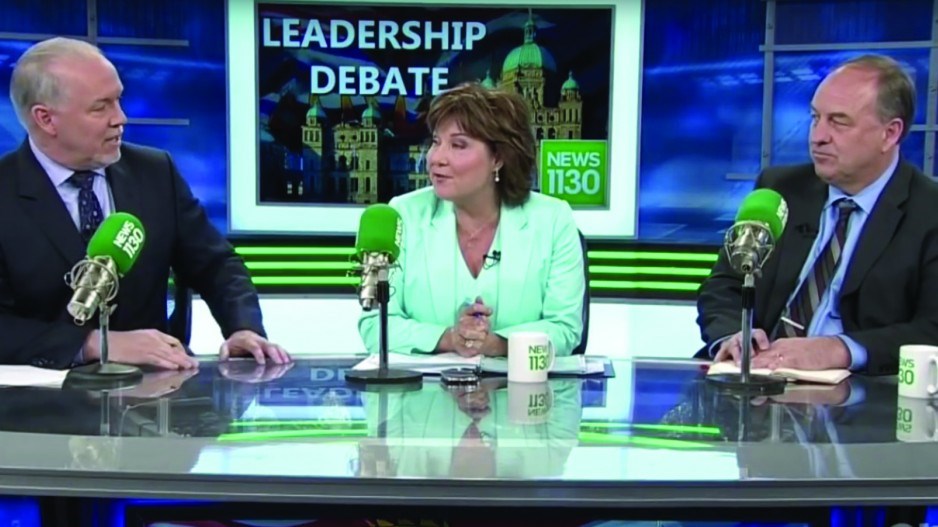BC’s most powerful politician, Andrew Weaver, is expected to announce by May 31 who will win an intense courtship battle waged by BC NDP Leader John Horgan and BC Liberal Premier Christy Clark for his hand in political marriage.
Will it be a marriage of convenience with the NDP? Or will it be an open relationship, with the BC Green Party leader propping up Clark’s minority government, while supporting the NDP on those areas where they share common ground?
No matter which way Weaver leans, it’s not going to be good for B.C.’s economy, according to Greg D’Avignon, CEO of the Business Council of British Columbia (BCBC).
The BCBC is projecting B.C.’s economic growth to slow to 2.2% this year from 3% last year, due to a cooling housing market and other pressures like softwood lumber duties.
The uncertainty of either a coalition or minority government is another disincentive to business investment. Moreover, a Liberal minority government would likely have to literally buy Green support through increased spending.
“Our economy is starting to slow,” D’Avignon said. “We’re downshifting. So at the very time when we’re talking about spending a whole bunch more money, there’s been no conversation on how we’re going to pay for it.”
Petronas, Shell and Kinder Morgan (NYSE:KMP) have energy projects that, combined, total roughly $80 billion worth of capital investment for B.C.
The question now is whether they will make the final investment decisions that were expected this year and next or wait to see how long a minority government lasts. D’Avignon said he thinks the Trans Mountain pipeline expansion will proceed. Less certain is whether Shell and Petronas will proceed with final investment decisions on their two liquefied natural gas projects.
He added that other business investments could be deferred.
“Capital, in large measure, is going to sit on the sidelines and wait to see what happens, regardless of who’s in power.”
A final vote count last week confirmed a Liberal minority government. Whether the party can keep it is all up to Weaver.
The Green party leader has been under intense pressure from left-of-centre forces – including Horgan – and his own base to forge an alliance with the NDP to deny Clark her right to govern and advance environmental and social policy planks that they hold in common. One is electoral and campaign financing reform. Another is trying to halt the $7.4 billion Trans Mountain pipeline expansion. The Greens and NDP also support universal child care and oppose the Liberals’ $3.5 billion George Massey Tunnel replacement project.
But giving Christy Clark the boot would not be as easy as some might think, according to Richard Johnston, political science professor at the University of British Columbia and Canada Research chair in public opinion, elections and representation.
The Liberals might not have a majority, but they hold a plurality of seats and have the right to govern.
“I think a coalition is unlikely, and it’s unnecessary,” Johnston said.
Clark’s government would first have to be defeated on a confidence vote, like a budget or throne speech, before a Green-NDP coalition could approach the lieutenant-governor and ask permission to form government.
Johnston believes it’s more likely that the Greens would strike a supply-and-confidence agreement, in which they would support the Liberal government on things like budgets, while reserving the right to vote with the NDP on other bills.
Last week, Weaver said he would announce his decision by May 31, when the writ is returned to the lieutenant-governor.
“We recognize that British Columbians want stability,” Weaver said. “They want this government to work.”




